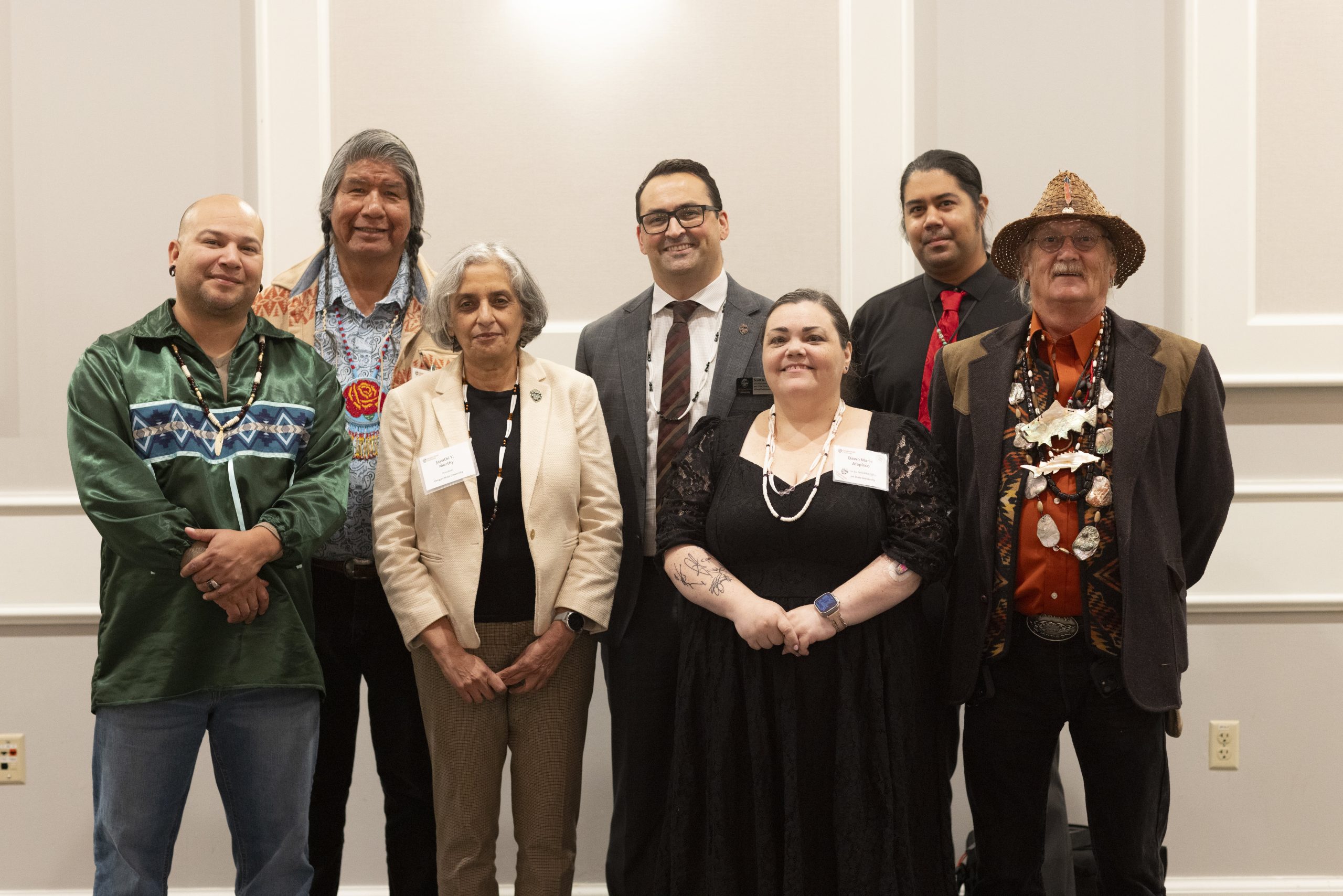Podcast: Play in new window | Download | Embed
Photo: An Edison exit poll questionnaire. (Steve Rhodes / Flickr)
Four major Native American groups are criticizing the presentation of Native voters in exit polls for this year’s presidential campaign.
As KLCC’s Brian Bull reports, they say the data is misleading and potentially harmful.
In a joint release, the groups say exit poll data from Edison Research for the National Election Pool is concerning, given limits in scope and methodology.
They say the sampling of 229 Native Americans does not reflect the diversity of Indian Country, and add that exit polling was done at only 279 polling places on Election Day, and 27 early in-person voting sites. And none were held on tribal lands.
“The numbers weren’t quite adding up for us.”
Michael Johnson is president of IllumiNative.
He says earlier work done with the Native Organizers Alliance on what’s called the Indigenous Futures Survey showed different results from the Edison-NEP research.
“While 48% of our community aligned with liberal ideologies, 52% of our community considered themselves moderate, conservative, or had no alignment to a party. And when we started seeing the exit poll from Edison-NEP, this didn’t seem to square with data we had done in our own community.”
But many major news outlets went with Edison-NEP’s findings, which showed 34% of Native voters in key battleground states identifying as left-leaning, and 65% as right-leaning.
Johnson says this is inaccurate, and harmful.
“The pervasiveness of misinformation creates a bias towards things that we don’t know or communities that we’re not a part of. And adds to the stereotypes, biases, and miseducation, and stands in the way of solidarity for all of our communities.”
The other two groups contesting the Edison Research-NEP data are the Native American Rights Fund and the National Congress of American Indians.
In a statement, Edison Research tells National Native News that given factors like the small sample size and the potential sampling error, the survey data should not be taken as a definitive word on the American Indian vote.
Johnson says he’s looking forward to a collaborative effort to tackle misrepresentation in polling, which would include more intensive tracking of Native voters at voting sites across Indian Country. He says this will help fight the plague of misinformation that harms nations.

(Courtesy Oregon State University)
The proper repatriation of Native American remains is behind a new facility in Corvallis, Oreg.
As KLCC’s Brian Bull reports, it’s a collaboration between Oregon State University and the nine federally recognized tribes within the state.
Called the “OSU-NAGPRA facility”, the two-buildings are about 2,000 square feet total.
They’re for consultation, records, and storing human remains in accordance with the Native American Graves Protection and Repatriation Act (NAGPRA).
The 1990 federal law mandates the safe return of skeletons, bones, and cultural items to their tribes.
Ashley Russell is director of Natural Resources and Culture for the Confederated Tribes of Coos, Lower Umpqua, and Siuslaw Indians.
She credits sensitive discussions among tribes, OSU, and the state in making this facility possible.
“It’s just very important to us as tribes to have that relationship, and it not be like a transactional thing because these are ancestors. They’ve made their journey, they’re on the other side, and you have to be careful when you navigate those sorts of things.”
Other tribal representatives across Oregon have voiced support for the facility, which may be the first built specifically for repatriation purposes.
Oregon’s NAGPRA Director Dawn Marie Alapisco was pleased with the support.
“This isn’t an ending at all, this is a new beginning. This is a change, a shift in how NAGPRA can and should be performed.”
NAGPRA compliance has been a constant sore spot between many tribes and institutions.
Some universities have retained bones and remains in years past, citing “research” needs.

Mount Hope Farm and other tenants, including two private homeowners, will be able to remain on the property after the transfer. (Photo: Kenneth C. Zirkel / Wikimedia)
The Associated Press reports that Brown University has transferred 255 acres of its land in Bristol, R.I. to a preservation trust with the Pokanoket Indian tribe.
In 2017, tribal members and allies held a protest encampment at Brown, saying the land was illegally taken from them centuries ago.
A tribal cultural sensitivity assessment later led to a recommendation that the land be considered a traditional cultural property, and that Pokanoket people have sustainable access to its land and waters.
Get National Native News delivered to your inbox daily. Sign up for our daily newsletter today.



